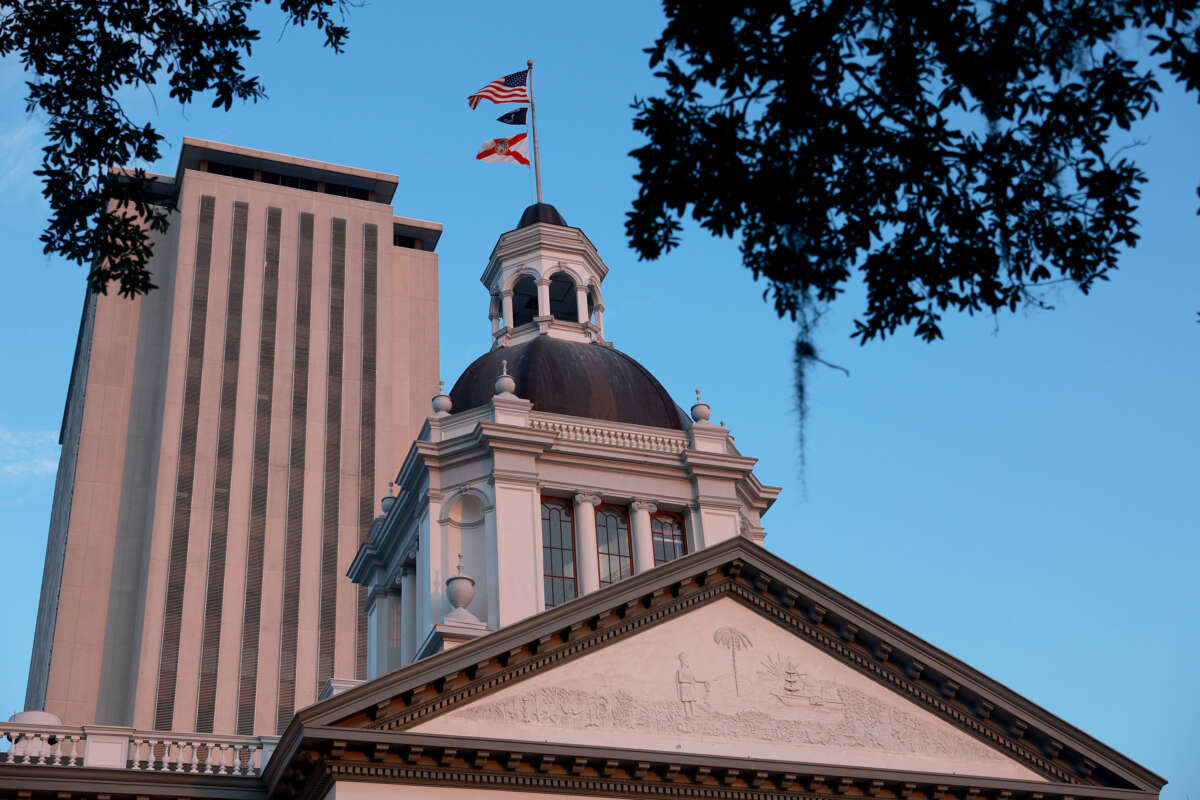Florida State Sen. Jason Brodeur (R) recently introduced a bill that would revoke certain privileges from journalists in the state, including the right to keep sources anonymous. The bill would also make accusing someone of racism, sexism, homophobia or transphobia defamatory, even if the accusation is based on a person’s “scientific or religious beliefs.”
“More attempts to chill free speech in the ‘free’ State of Florida,” State Rep. Anna V. Eskamani (D) said on social media.
The bill, SB 1780, would alter the widely accepted standard in which a defendant would need to prove “actual malice” on behalf of the plaintiff to succeed in a defamation suit. SB 1780 would make “an allegation that the plaintiff has discriminated against another person or group because of their race, sex, sexual orientation, or gender identity [] defamation per se,” meaning that there is a presumption that the statement harmed the reputation of the plaintiff and was, therefore, defamatory. If a defendant is held liable for defamation, they could be fined at least $35,000.
“The bill would tremendously chill speech in Florida,” transgender journalist Erin Reed said. “The bill applies to print, television, and even online posts, meaning that even posting on social media that someone is transphobic or homophobic could land one in trouble.”
SB 1780 also narrows the legal definition of who constitutes a “public figure,” excluding non-elected or appointed public employees and individuals who gained notoriety by “a video, image, or statement uploaded on the internet that has reached a large audience.” In most jurisdictions, a public figure cannot succeed in a defamation lawsuit, even if the statements made against them were incorrect and harmful, unless they can prove that the defendant acted with actual malice. The proposed bill aims to modify this existing legal framework, expanding the scope for individuals to file defamation lawsuits when facing allegations of racism, sexism, homophobia, or transphobia.
The bill also puts journalists reporting on discrimination at risk of defamation lawsuits by undermining well-established press freedoms, including the right to maintain source anonymity. SB 1780 would make statements from anonymous sources “presumptively false,” potentially making journalists vulnerable to legal action.
This bill is virtually identical to a bill introduced last year by state Rep. Robert Andrade (R), which passed the Civil Justice subcommittee but died in the Judiciary Committee. However, Reed warns that “Given Florida’s history of escalating anti-LGBTQ+ laws, such as the ‘Don’t Say Gay or Trans’ expansion in the state, it bears close watching for potential passage this year.”
Last year, Brodeur introduced a different bill, SB 1316, that also aimed to erode press freedoms in the state. This bill would have required paid bloggers who write about elected officials, including Gov. Ron DeSantis (R), his administration, and the state legislature, to register with the state government. The bill also would have required the writers to self-report every time they wrote a story about Florida lawmakers, including information on how much they were paid and who they were paid by. Failure to submit these disclosures within five days of publication would have resulted in a daily fine of $25, up to a maximum of $2,500 for non-compliance.
Press freedom is under attack
As Trump cracks down on political speech, independent media is increasingly necessary.
Truthout produces reporting you won’t see in the mainstream: journalism from the frontlines of global conflict, interviews with grassroots movement leaders, high-quality legal analysis and more.
Our work is possible thanks to reader support. Help Truthout catalyze change and social justice — make a tax-deductible monthly or one-time donation today.
